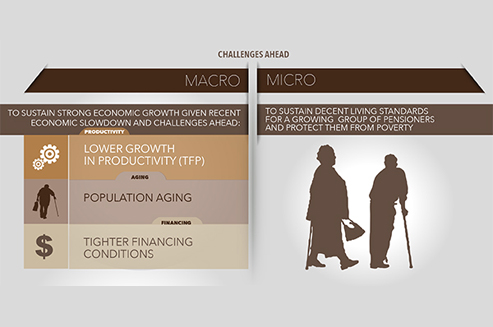Over the last two decades, Poland has been a shining success story of economic growth and convergence within the European Union (EU). The country continues to catch up with the EU average with impressive speed – with per-capita income increasing from less than 42% of the EU15 average in 2000 to 60% in 2012, write experts of World Bank.
As Poland continues down a path of growth and development, a number of new challenges are emerging for the economy. One of them is a rapidly aging population. A greater share of its population is heading into retirement, while fewer and fewer workers are entering the workforce to replace them. This trend not only affects the future supply of labour in the country, it also impacts social systems such as pensions. According to World Bank, household savings will need to increase in order to bridge income gaps not filled by public pensions in the future and avoid old age poverty. Also the state and the corporate sector will need to make adjustments to their savings to help the country meet the economic challenges of the next phase of Poland’s development. Therefore saving seems to be crucial issue impacting the country’s growth and living standards in the nearest future.
Full raport can be found on World Bank’s website: Saving for the Future: Supporting Economic Growth and Living Standards in an Aging Poland.
Source: Polish Infomation and Foreign Investment Agency World Bank
Illustration © World Bank


